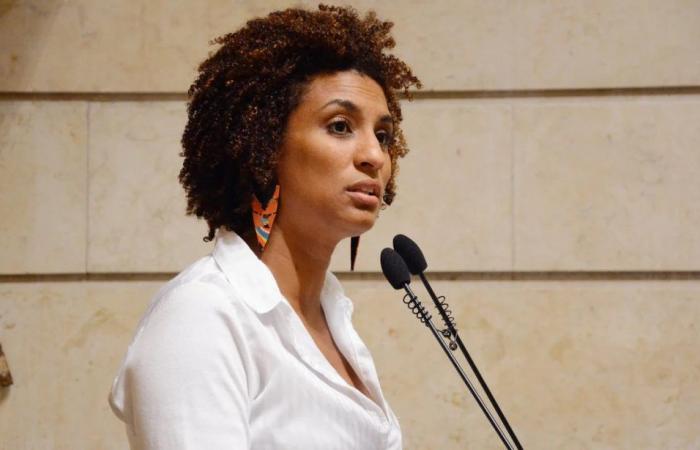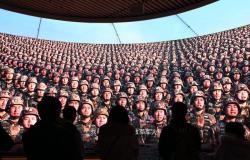Six years after the murder of councilor Marielle Franco and her driver, Anderson Gomes, the alleged perpetrators of this barbaric crime were finally arrested by the Federal Police. After so much procrastination and prevarication, we are beginning to answer the question that has been persistent since 2018: who ordered Marielle to be killed? It’s because? It remains to be seen whether the “chain of command” of the crime ends with the Brasão brothers…
The fact is that it is increasingly evident that, in addition to configuring yet another episode of violence against women, the murder of the combative councilwoman is linked to her tireless fight for housing, which ended up going against the interests of real estate speculation promoted by Rio militias in some regions of Rio de Janeiro.
CONTINUES AFTER AD
The genesis of the militia phenomenon is known: in the 1980s and 1990s, residents of some neighborhoods and communities in Rio, basically PMs and civil police officers, under the pretext of combating drug trafficking, formed “self-protection” groups – the embryo of militias –, which occupied the vacuum left by the absence of the State in the city’s favelas and other communities.
In a logic similar to that of the Mafia and extermination groups, the militias charged residents “protection fees” and, as they drove away drug traffickers, they gained acceptance from the communities. In many places, militias ended up taking over what used to be drug trafficking. Over time, benefiting from the reduction in police operations in areas under their control, militia members expanded their activities to include real estate developments.
CONTINUES AFTER AD
At a certain point, this real estate expansion became one of the main activities of organized crime in Rio de Janeiro, exploiting the housing needs of the population left to fend for itself by the State. There were a large number of people who wanted to avoid rent, but who did not have money, and the militias offered many “advantages”, such as longer financing terms than what the banks offered.
In the West Zone, the illegal real estate boom has even advanced into environmental protection areas, with the opening of new subdivisions and even activities such as the extraction of stone and gravel to supply illegal works. On another front, the militiamen also promoted the violent expulsion of residents from Minha Casa, Minha Vida residential complexes, appropriating the properties to sell or rent them.
CONTINUES AFTER AD
Scholars define this phenomenon as “militia urbanism”, in which criminal groups associate with politicians and public officials to illegally gain control of urban land. This practice involves the real estate market, including land grabbing, land regularization and the provision of urban services, creating a corrupt system.
In addition to being a source of income, these activities are political instruments that, through improvements such as land regularization, infrastructure works and housing projects, contribute to expanding the militias’ territorial and electoral control over entire communities.
CONTINUES AFTER AD
And some councilors establish direct links with these criminal activities, approving laws that legitimize the illegal appropriation of land. Municipal councils, therefore, play a fundamental role in regulating these practices. But they can work to contain them.
This collusion between organized crime and public authorities is not exclusive to Rio de Janeiro, being observed in several Brazilian cities, including São Paulo, where the popular demand for housing often ends up being co-opted by interests linked to illegal territorial control.
CONTINUES AFTER AD
Marielle was at the center of the fight for housing to be allocated to low-income people, which went against the interests of the militia, which was up to its neck in real estate speculation. The PF investigations brought evidence that the Brasão brothers – federal deputy Chiquinho and TCE advisor Domingos – are suspected of having strong links with these organized crime groups.
According to the confessed killer, former PM Ronnie Lessa, Marielle was killed because she was an “obstacle to the interests of her brothers”, as she encouraged community leaders not to enter subdivisions linked to the militia. Furthermore, Marielle was strongly opposed to the Bill presented by then councilor Chiquinho, which relaxed the rules for land occupation in the city. Approved by the Chamber, the PL ended up being considered unconstitutional by the TJ of Rio de Janeiro.
CONTINUES AFTER AD
Marielle fought against the kidnapping of the State by organized crime, a phenomenon whose origins date back to the dictatorship, when the infamous death squads emerged in the country. In short, the reason for having Marielle killed was the land issue, access to housing and territory. Following her fight is the best tribute we can pay to her memory.






